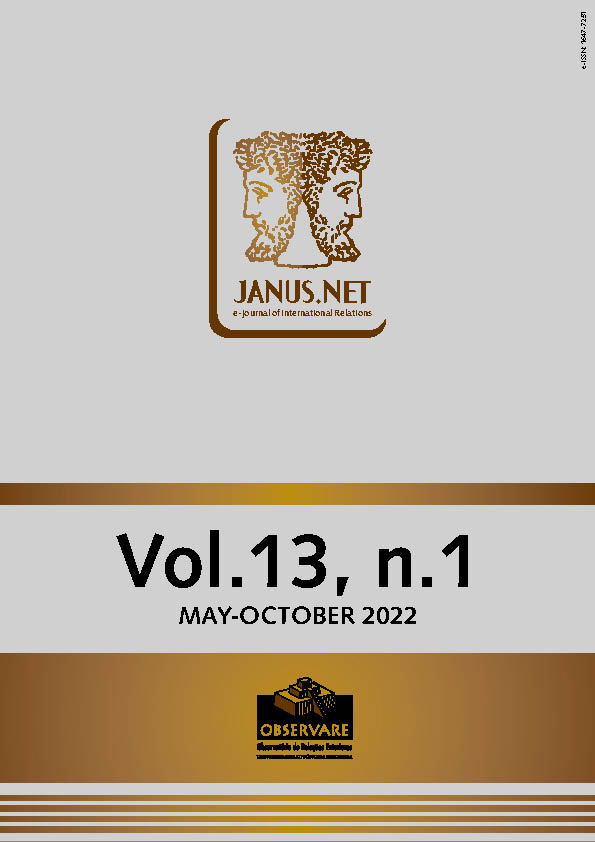The following paper aims to reconstruct the evolution of this dynamic by tracing the interpretations and reinterpretations of the norm done by Brazilian state actors through the process of localization of the norm in the domestic discourse on climate change in Brazil from 2005 to 2010. The theoretical perspective is based on the literature about norms internalization that attempts to specify the conditions under which international norms find salience in particular domestic contexts.
Two main interpretations coexist within the Brazilian political arena in the period within the entry into force of the Kyoto Protocol until the signature of the Paris agreement that influenced the climate politics in Brazil in that period. The first stand around the norm was a traditional interpretation of the principle defending a position of historical responsibilities that implies that Brazil did not have to take greenhouse gas reduction measures. The second position is a more progressive interpretation of the norm that argues that Brazil, as an emergent country, can and must adopt emissions reductions. The tie between both positions allows us to understand the alleged ups and downs in climate policy in the time frame studied.
COMMON BUT DIFFERENTIATED RESPONSIBILITIES REGARDING CLIMATE CHANGE. DIFFERENT INTERPRETATIONS WITHIN THE BRAZILIAN NATIONAL CONTEXT
Ph.D. in Social Sciences from FLACSO, Argentina. Postdoctoral fellow in the National Scientific and Technical Research Council (CONICET) co-financed by the Universidad Católica de Córdoba (Argentina). Teacher and researcher at this house of studies and in Universidad Blas Pascal. Member of the Observatory of Argentine Climate Policy, ARG1.5º.
Master’s candidate in Law and Economics of Climate Change (FLACSO, Argentina). Bachelor of Arts in International Relations (Universidad Católica de Córdoba) and Bachelor of Arts in Political Science (Universidad Católica de Córdoba). Lecturer at Universidad Siglo XXI. Coordinator of the Climate Change and Sustainable Development area in Asociación Sustentar, member of the FLACSO research team on cities and climate change and the Observatory of Argentine Climate Policy, ARG1.5º. In turn, she is a member of different national and regional climate networks, such as the Latin American Observatory for Climate Action (OLAC), the Latin American Youth and Climate Change Platform (Clic!), and the Alliance for Argentine Climate Action (AACA).
Resumo
Este artigo pretende reconstruir a evolução desta dinâmica, traçando as interpretações e reinterpretações da norma feitas pelos atores estatais brasileiros através do processo de localização da norma no discurso doméstico sobre as alterações climáticas no Brasil de 2005 a 2010. A perspetiva teórica baseia-se na literatura sobre internalização de normas que tenta especificar as condições sob as quais as normas internacionais encontram relevo em contextos domésticos particulares. Duas interpretações principais coexistem na arena política brasileira no período compreendido entre a entrada em vigor do Protocolo de Quioto e a assinatura do Acordo de Paris que influenciou a política climática no Brasil nesse período. A primeira posição em torno da norma foi uma interpretação tradicional do princípio de defesa de uma posição de responsabilidades históricas que implicava que o Brasil não tinha de tomar medidas de redução de gases com efeito de estufa. A segunda posição é uma interpretação mais progressiva da norma, que defende que o Brasil, como país emergente, pode e deve adotar reduções de emissões. A ligação entre ambas as posições permite-nos compreender os alegados altos e baixos na política climática no horizonte temporal estudado.
Palavras-chave
Como citar este artigo
Kiessling, Christopher Kurt; Alonso, Agustina Pacheco (2022). Common but differentiated responsibilities regarding climate change. Different interpretations within the Brazilian national context. In Janus.net, e-journal of international relations. Vol13, Nº. 1, May-October 2022. Consulted [online] on the date of the last visit, https://doi.org/10.26619/1647-7251.13.1.10
Article received on 11 September, 2021 and accepted for publication on 20 February, 2022















